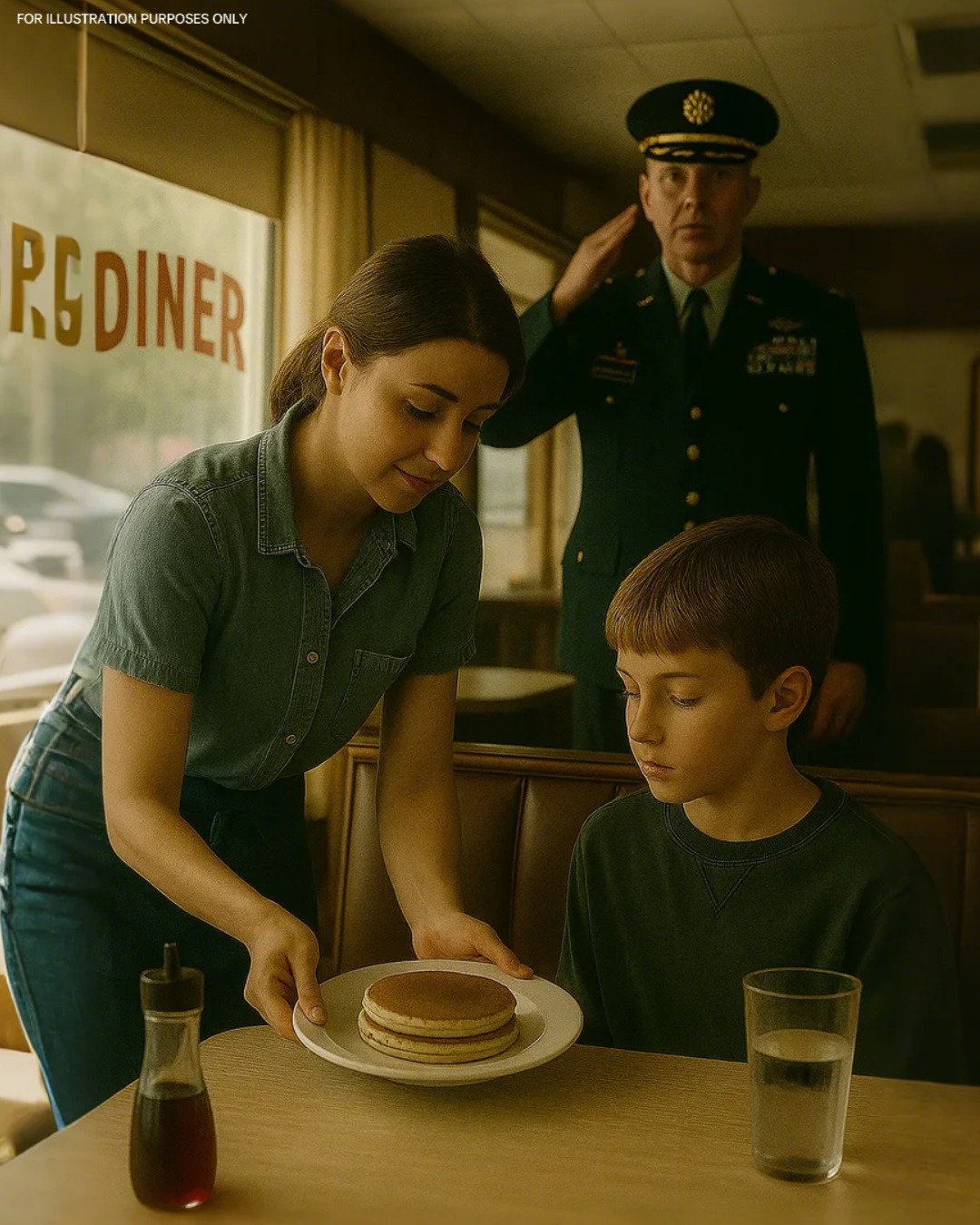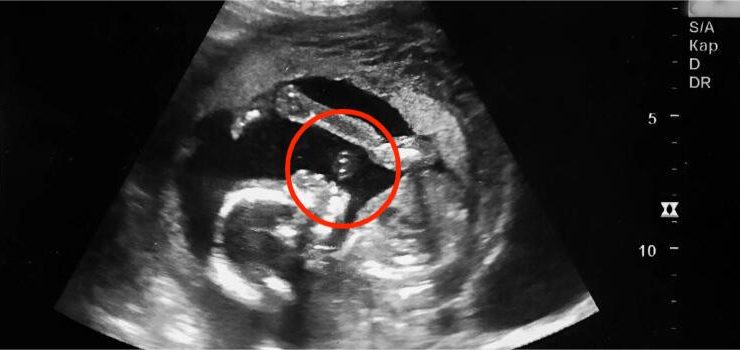Every morning, 29-year-old Jenny Millers tied on her faded blue apron and welcomed customers to Rosie’s Diner with a warm smile. Nestled between a hardware store and a laundromat in a quiet Kansas town, the diner was more than just her workplace—it was her second home and the only family she had left.

Jenny lived alone in a one-bedroom apartment above the local pharmacy. Her parents had passed away during her teenage years, and the aunt who had raised her had moved away long ago. Her days were quiet, predictable, and, at times, lonely. Then one crisp October morning, a boy walked in. He looked no older than ten, small for his age, with cautious eyes and a tattered backpack resting beside him in the corner booth. He ordered only a glass of water and quietly read a book until he left for school. The next day, he returned—same booth, same water, same silence. By the second week, Jenny noticed he arrived every day at precisely 7:15 a.m., always alone, never eating, just quietly observing others around him. On the fifteenth day, she “accidentally” brought him pancakes. “Oh, I’m sorry,” she said gently, placing the plate in front of him. “The kitchen made an extra.
Better to eat it than let it go to waste, right?” Without waiting for a response, she walked away. Ten minutes later, the plate was clean. “Thank you,” the boy whispered as she cleared the table. That became their unspoken routine. Jenny never asked his name. He never explained why he came. But each morning, she brought him a breakfast “mistakenly” made just for him—sometimes pancakes, sometimes eggs and toast, sometimes warm oatmeal on colder days. He never left a single bite. Some questioned her generosity. “You’re feeding a stray,” her coworker Kathy said. “They always leave eventually.” Jenny simply replied, “It’s fine. I used to be that hungry too.” When her manager Mark asked about the free meals, she offered to cover the cost from her tips.
“I can manage,” she told him firmly. But one Thursday, the boy didn’t show. Jenny waited and still made the pancakes. They sat untouched. The next day, the same. A week passed. Ten days. Kathy shook her head. “Told you. They never stick around.” Someone even posted a photo of the empty booth online, mocking her: “Rosie’s Diner Now Serving Imaginary Charity Cases?” The comments turned cruel—accusations of seeking attention or being conned.
Alone in her apartment, Jenny opened her late father’s old Army journal, where he had once written: “No one grows poorer by sharing half a loaf, but those who forget to share remain hungry their whole lives.” With teary eyes, she made pancakes again the next morning. Just in case. On the 23rd day, everything changed. At 9:17 a.m., four black military SUVs rolled up outside the diner. Officers stepped out in uniform, and from the lead vehicle emerged a high-ranking man. He walked in, looked around, and asked, “I’m looking for Jenny.” She stepped forward, coffee pot in hand. “That’s me.”
The man removed his cap. “Colonel David Reeves, U.S. Army Special Forces. I’m here because of a promise.” He handed her an envelope and said, “The boy you’ve been feeding—his name is Adam Thompson. His father, Master Sergeant James Thompson, was one of my best men. He was killed in action in Afghanistan.” Jenny stood frozen. “Adam’s mother abandoned him after his father deployed. Your kindness at this diner kept that boy going. He never told anyone because he didn’t want to be taken away.” Jenny clutched the envelope. “Sergeant Thompson’s final letter said, ‘If anything happens to me, find the woman named Jenny at the diner. Tell her thank you. She didn’t just feed my son—she preserved his dignity.’” The colonel saluted. One by one, every soldier followed. Jenny wept. “I didn’t know,” she whispered. “I just couldn’t let him go hungry.”
“That’s why it mattered,” the colonel replied. News of her story spread. The same online group that mocked her now sang her praises. Customers left larger tips and notes like “Your kindness reminds me of my son in the Navy.” Mark, the manager, hung an American flag over Adam’s booth with a plaque that read: “Reserved for those who serve—and those who wait.” A week later, Jenny received a letter from Adam. He thanked her for making him feel seen and said his grandparents were kind, teaching him to fish, though he missed his dad—and her pancakes. Jenny framed the letter and hung it behind the counter, just where she could see it every day. Soldiers passing through Kansas began stopping at Rosie’s, leaving behind patches and coins. Months later, a little girl asked Jenny if she felt like a hero. Jenny smiled and replied, “No, sweetheart. I just know what it’s like to be hungry.”
That summer, the diner held its first fundraiser for military families, raising enough to start an emergency fund for children of deployed soldiers. Mark matched every donation. Nearly a year after Adam first entered the diner, Jenny found a military challenge coin on the counter engraved with the words “Semper Memer — Always Remembering.” She looked outside, but no one was there. Later that day, Mark had put up a new sign in the window: “Whoever you are, whatever you can pay—no one leaves hungry.” Jenny smiled. No grand speeches. Just pancakes. Just kindness. And the quiet hope that someone, somewhere, still remembers how to care.
This work is inspired by real events and people, but it has been fictionalized for creative purposes. Names, characters, and details have been changed to protect privacy and enhance the narrative. Any resemblance to actual persons, living or dead, or actual events is purely coincidental and not intended by the author.





